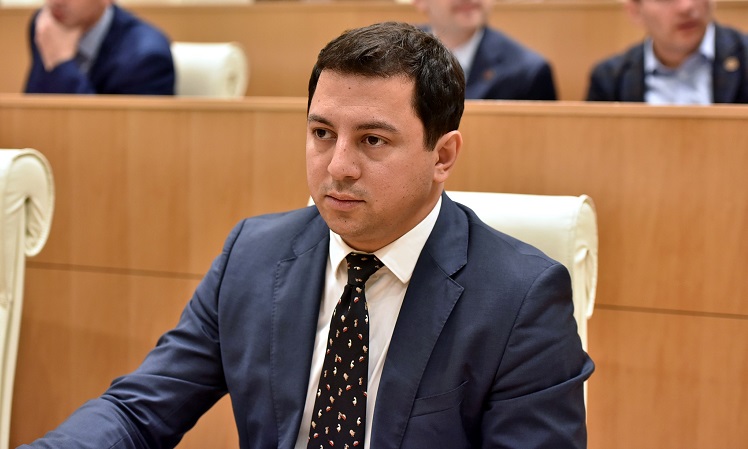Parliament Vice Speaker says European Parliament resolution “diverges from reality”, lacks fairness and contains “distorted facts”

Talakvadze claimed the fact of the resolution only gaining support of 200 MEPs showed “how fair its content” was “to some extent”. Photo: Parliament of Georgia
Archil Talakvadze, the Vice Speaker of the Georgian Parliament, on Friday said the resolution on violations of media freedom and the safety of journalists in Georgia, adopted by the European Parliament on Thursday, “diverges from reality”, “lacks fairness” and “contains distorted facts”.
Talakvadze claimed the fact of the resolution failing to gain support from 200 MEPs showed “how fair its content” was “to some extent”.
We believe that the resolution completely diverges from reality, it lacks fairness and contains distorted facts. The Georgian public and many people in Europe know very well that Nika Gvaramia [the recently imprisoned Director General of Mtavari Arkhi channel, mentioned in the resolution] is no free media, and Mikheil Saakashvili [the imprisoned former President of Georgia] is not a guarantor of democracy, or a symbol of democracy in Georgia”, the Parliament official said.
Talakvadze also focused on the part of the resolution that referred to local opposition’s demands for a transfer of Saakashvili abroad for medical treatment, noting that the Georgian Government had a “human rights-based approach” towards the former President.
As for granting Georgia the European Union membership candidate status, the country deserves it fairly and objectively, given the progress Georgia has made in recent years, as reflected in the assessment reports of the European Union”, Talakvadze concluded.
The European Parliament resolution adopted on Thursday noted the “increasing number of cases of intimidation, violence against and persecution of journalists” in Georgia and called on the country’s authorities to “thoroughly investigate any case of violence and to prosecute those responsible”.
It noted the assault on reporters by right-wing groups in Tbilisi on July 05, 2021, ahead of a planned Tbilisi Pride event, and pointed to a “persistent lack of diligent investigation and prosecution of those responsible for the violence”.
The resolution also urged Georgian authorities to “refrain from interfering in media freedom or pursuing politically motivated judicial cases against media owners or representatives”, and noted the case of Gvaramia, who was sentenced to three years and six months in prison last month for causing financial damage to Rustavi 2 channel through advertising deals between 2015-2019, during his time at the helm of the company.
 Tweet
Tweet  Share
Share